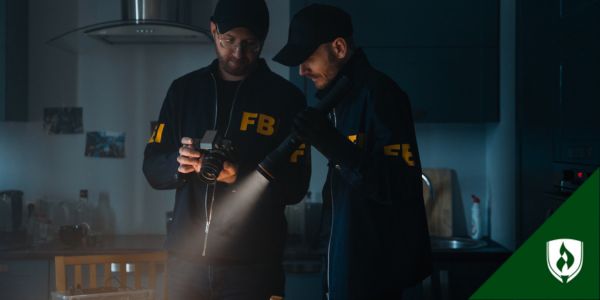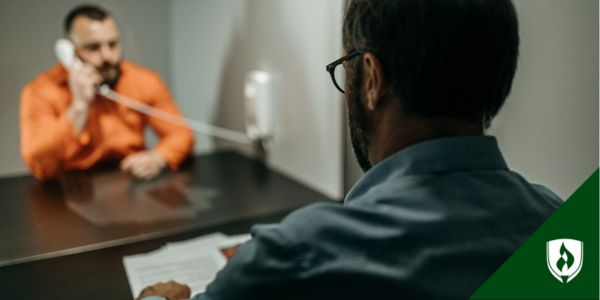 Criminals don’t care about the gender of a police officer—they don’t fight extra hard to get away from males and they’re certainly not worried about being courteous around female officers. You’ve got to be tough to make it in law enforcement, no matter your gender.
Criminals don’t care about the gender of a police officer—they don’t fight extra hard to get away from males and they’re certainly not worried about being courteous around female officers. You’ve got to be tough to make it in law enforcement, no matter your gender.
Mankato, Minn., criminal justice student Stephanie Beighley knows all about that toughness as she works her way toward a career in the justice system.
Pursuit of passion sets bar
Beighley says her decision to pursue a degree in criminal justice was natural as she has always been interested in the legal system and the psychology behind criminal behavior. She enrolled at Rasmussen College in July 2011, shortly after graduating high school.
She was the first person in her immediate family to enroll in college, but as a would-be cop, fear of the unknown wasn’t going to stop her. The expectations that come from being the first to attend could have added a layer of pressure to succeed, but she uses it as motivation.
“I want my nieces and nephews to see that college is very important and that they can do it,” she says.
Beighley has set an example for more than just her younger family members—her older sister decided to return to school after seeing her success at Rasmussen College.
Not all of Beighley’s family experiences while in college were positive though. Her cousin died unexpectedly during her first quarter in school. The loss cast a shadow over her during a time of major transition and could have easily put her into an academic tailspin. Her determination, along with the support of her family and the staff at the Mankato campus, allowed her to maintain a stiff upper lip in the face of tragedy and get back on track.
“I was very close with admissions and my instructors,” Beighley says. “They really helped me figure out what I needed to do to get back and focused.”
Beighley had another major hurdle to clear after recovering from the loss of her cousin—law enforcement SKILLS training. The sixth month training program is held at the Eagan, Minn., campus and requires students to undergo, among other things, 80 hours of use-of-force training, 40 hours of traffic stop instruction and 60 hours of crime scene investigation training.
Beighley admits she was anxious before starting, especially after hearing about the requirement to be pepper-sprayed and hit with a Tazer as part of the training. Her concerns were eased a bit when she saw other females in the program.
“It’s the same training for everyone—it’s challenging and a lot of physical work,” Beighley says. “You have to know you want to be a police officer because if you walk in with the wrong mindset you’re not going to do well.”
Beighley says the instructors have all the motivation they need to ensure students are properly equipped for police work—they are all either active duty or retired law enforcement officers and have undergone similar training.
“It’s nice knowing they’ve all been through it and understand it’s difficult,” Beighley says. “They push you because you could be backing them up someday, or even be their partner, so they want you to know exactly what to do.”
Lending a helping hand
Beighley’s education hasn’t just been in the classroom—outside of school she volunteers at the Crime Victims Crisis Center in her home town of Albert Lea, Minn., and is also active in a task force to help prevent human trafficking. Her duties at the CVCC include assisting victims with orders of protection, phone counseling and accompanying them to court appearances.
Beighley says the experience has been both eye-opening and educational, and in some cases, hit a bit close to home.
“The first call I took was the mother of someone I went to high school with,” Beighley says. “It was tough telling someone that they need to get out of an abusive relationship when you’re the same age as their kid. I’ve learned a lot about how to talk to victims in a way that doesn’t make them feel like they’ve done something wrong.”
The goal for her work with the human trafficking task force is to educate both the public and law enforcement officers about the realities of prostitution and human trafficking.
“People think prostitution is just something people do when they can’t find a job and need money,” Beighley says. “But the reality is most of them don’t get that money—it goes straight to their pimps who will beat them if they don’t come up with it.”
Beighley also visited truck stops near her hometown with the task force to educate drivers on signs of human trafficking and to provide information on who to call if they suspect foul play. There’s a surprising amount of illegal trafficking even in small towns, she says.
“Human trafficking isn’t just something that happens in big cities, it can happen everywhere,” Beighley says.
Plans for her future
Beighley’s volunteer experience has given her a clear, if unexpected, career goal. “I really want to prosecute these pimps that take girls across state lines,” she says. “They’ve been getting off with slaps on the wrist and I’d like to see that change.”
She wants to attend law school after she completes her bachelor’s degree, and is about to begin preparation for the Law School Admission Test (LSAT). Beighley admits to being a little nervous about the test, but her volunteer experience should help with the admissions process.
Beighley can rest easy for at least one reason—even if things don’t go as planned with the LSAT and she never steps foot into a law school, her training and education at Rasmussen College have set her up for a career of protecting and serving her community as a law enforcement officer.
Ready to get started?
Do you see yourself making a career out of helping your community? A criminal justice degree can set you on the right track. Click the ‘request program info’ button at the top of the page to find out more.




